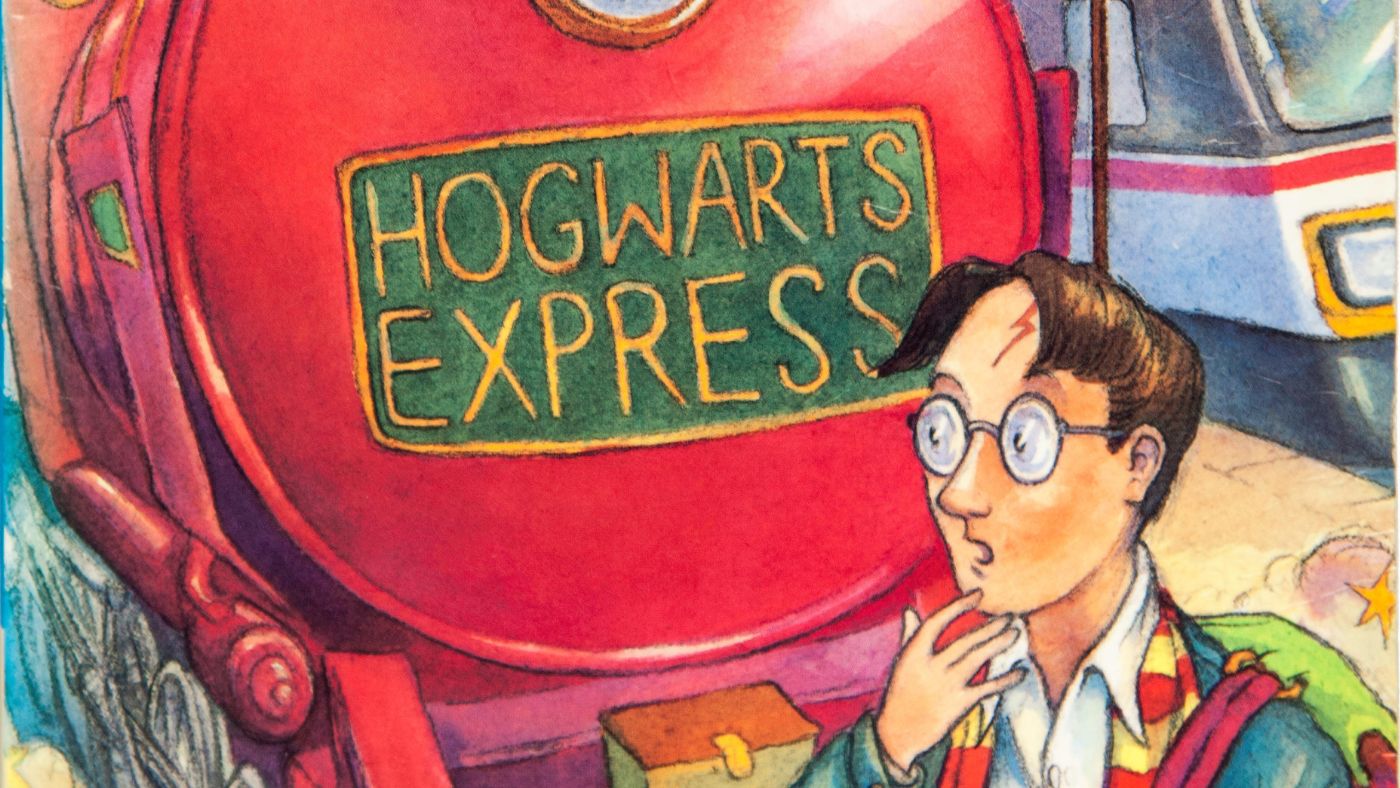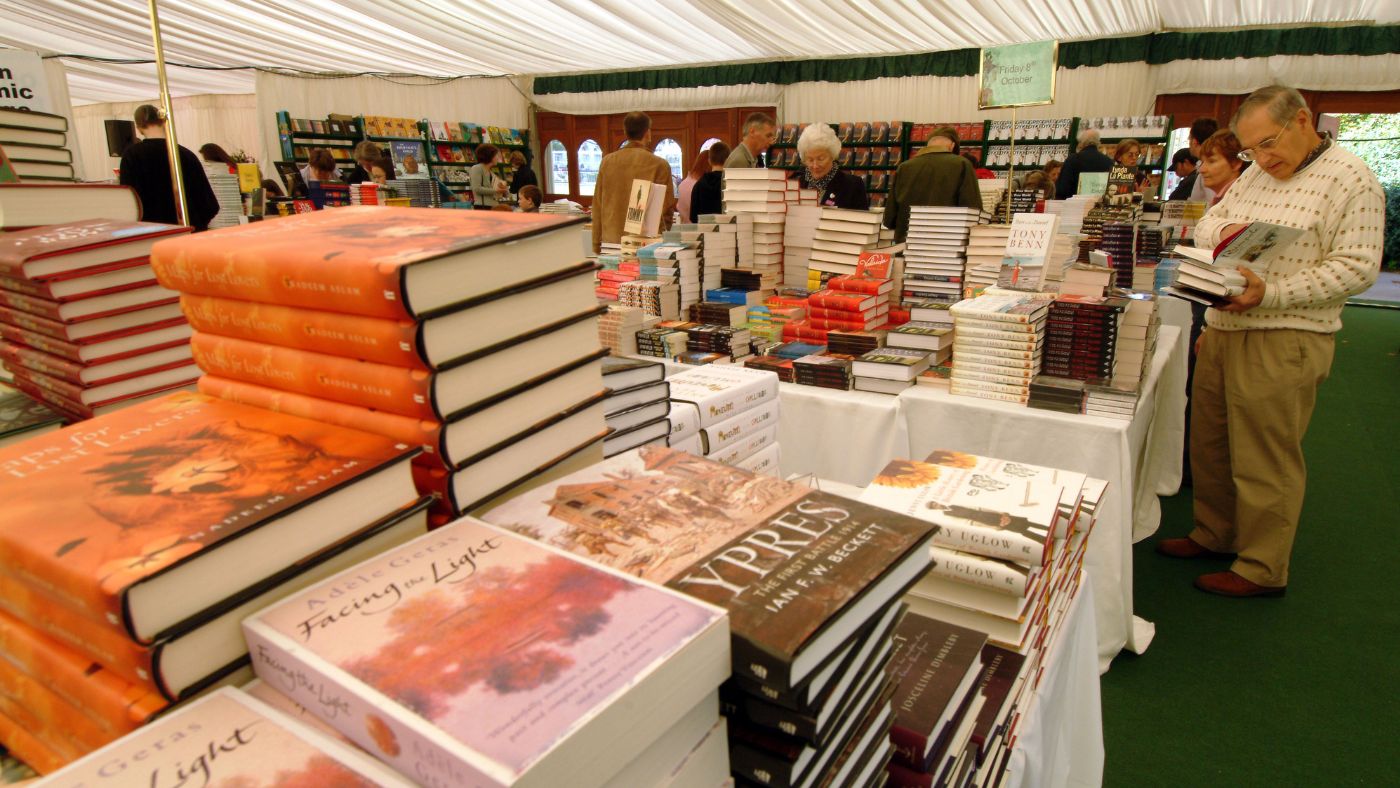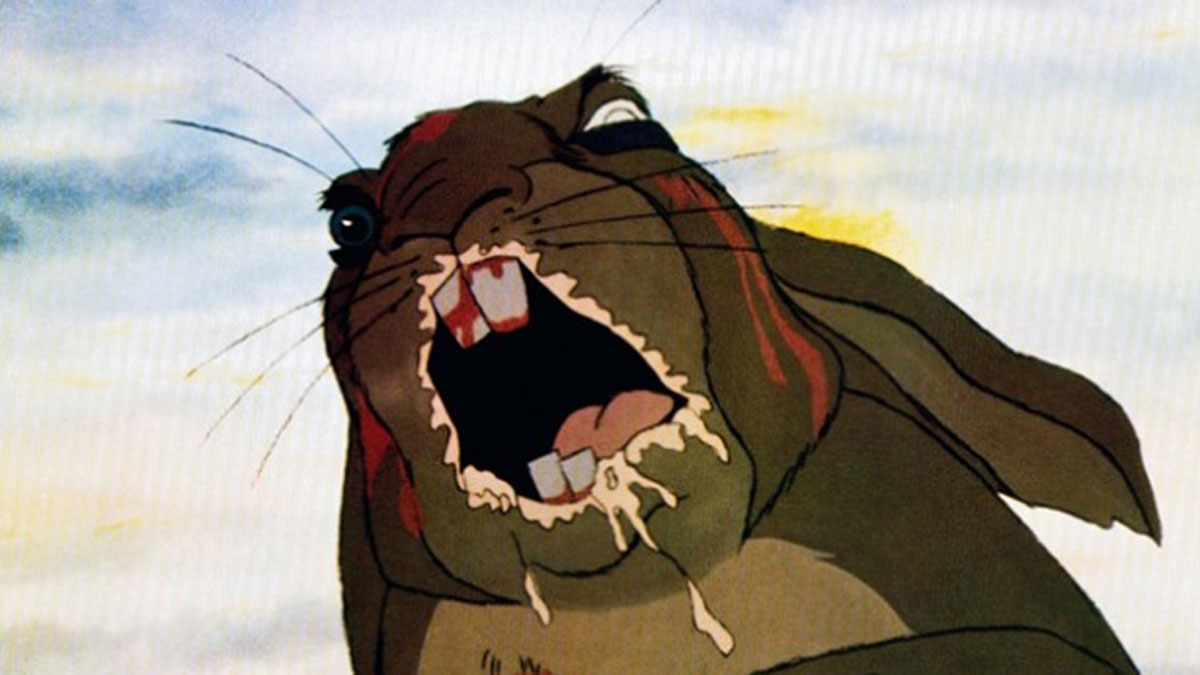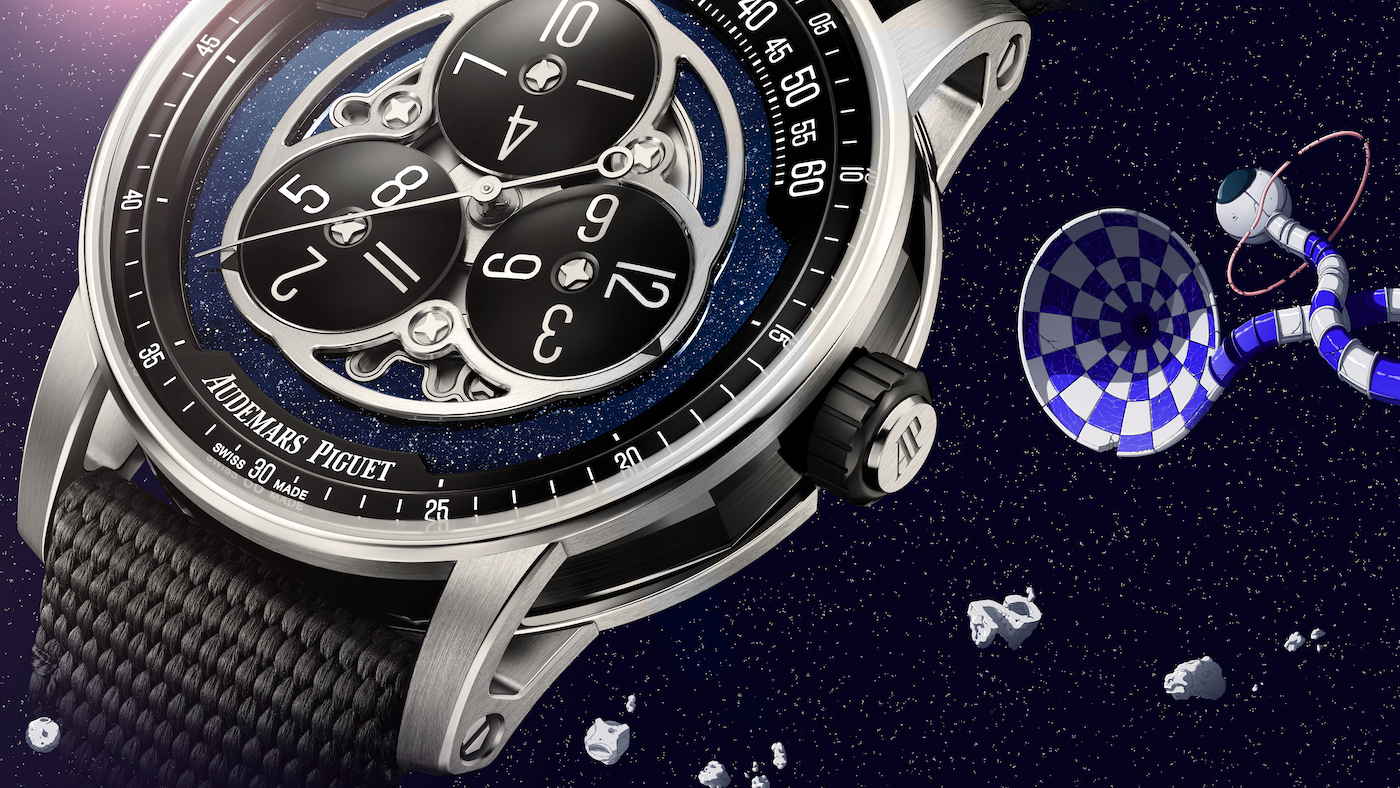Top 10 best debut novels of all time
Harry Potter and the Philosopher’s Stone took top spot in a poll of British literary lovers

- 1. Harry Potter and the Philosopher’s Stone (1997) by JK Rowling – 31%
- 2. To Kill a Mockingbird (1960) by Harper Lee – 26%
- 3. The Hobbit (1937) by JRR Tolkien – 26%
- 4. Carrie (1974) by Stephen King – 20%
- 5. Frankenstein (1818) by Mary Shelley – 18%
- 6. Lord of the Flies (1954) by William Golding – 17%
- 7. The Hitchhiker’s Guide to the Galaxy (1979) by Douglas Adams – 16%
- 8. The Wonderful Wizard of Oz (1900) by L Frank Baum – 15%
- 9. The Girl With The Dragon Tattoo (2005) by Stieg Larsson – 14%
- 10. Gone with the Wind (1936) by Margaret Mitchell – 14%
A free daily email with the biggest news stories of the day – and the best features from TheWeek.com
You are now subscribed
Your newsletter sign-up was successful
British readers have voted JK Rowling’s “Harry Potter and the Philosopher’s Stone” as the greatest debut novel of all time.
A poll of 2,000 UK literary lovers, commissioned by Amazon.co.uk to launch its Kindle Storyteller Award, saw the 1997 first instalment of Rowling’s series take 31% of the vote. “To Kill a Mockingbird” by Harper Lee and “The Hobbit” by JRR Tolkien were joint-second on the list with 26%, followed by “Carrie” by Stephen King (20%) and “Frankenstein” by Mary Shelley (18%).
The other novels to make the top 10 included: “Lord of the Flies” by William Golding (17%); “The Hitchhiker’s Guide to the Galaxy” by Douglas Adams (16%); “The Wonderful Wizard of Oz” by L Frank Baum (15%); “The Girl With The Dragon Tattoo” by Stieg Larsson (14%); and “Gone with the Wind” by Margaret Mitchell (14%).
The Week
Escape your echo chamber. Get the facts behind the news, plus analysis from multiple perspectives.

Sign up for The Week's Free Newsletters
From our morning news briefing to a weekly Good News Newsletter, get the best of The Week delivered directly to your inbox.
From our morning news briefing to a weekly Good News Newsletter, get the best of The Week delivered directly to your inbox.
Here we round-up what the book critics said in their reviews of the top 10 debut novels:
1. Harry Potter and the Philosopher’s Stone (1997) by JK Rowling – 31%
Much like her star character, JK Rowling had a “wizardry inside”, said Michael Winerip in his 1999 review for The New York Times, and she “soared beyond her modest Muggle surroundings” to achieve something “quite special”. This first novel is “wonderful” and though “all this hocus-pocus” is “delightful”, the magic in the book is “not the real magic of the book”. Much like Roald Dahl, Rowling “has a gift for keeping the emotions, fears and triumphs of her characters on a human scale”, even while the supernatural is “popping out all over”.
2. To Kill a Mockingbird (1960) by Harper Lee – 26%
Author Harper Lee, an Alabaman, wrote her first novel with “all of the tactile brilliance” and none of the “preciosity” generally supposed to be “standard swamp-warfare issue” for Southern US writers, said TIME magazine in its original August 1960 review of “To Kill a Mockingbird”, under the headline “About Life & Little Girls”. The novel is an account of “an awakening to good and evil” and Lee’s prose has “an edge that cuts through cant”. She teaches the reader “an astonishing number of useful truths” about little girls and about Southern life.
A free daily email with the biggest news stories of the day – and the best features from TheWeek.com
3. The Hobbit (1937) by JRR Tolkien – 26%
Re-reading “The Hobbit” turned out to be “something of a revelation”, said The New Yorker’s Jon Michaud in his 2012 revisit of JRR Tolkien’s classic tale. The plot “couldn’t be simpler” – it is the “very essence” of an adventure story. Compared to the “Rings” trilogy, which has been “freighted with all kinds of real-world allegories”, “The Hobbit”, written before the Second World War, “belongs to a more appealingly innocent world”.
4. Carrie (1974) by Stephen King – 20%
Structurally, “Carrie” is a “really weird one”, said The Guardian’s James Smythe in his 2012 re-read of Stephen King’s first novel. Standard “Kingian third-person narrative voice” is interspersed with “extracts from other media” – newspaper reports, autobiographies of characters, transcripts of police interviews, “that sort of thing”. “Carrie” ended up being “quite a zeitgeisty novel” and while it’s not a structure that “entirely works”, it’s a “really good story”. As a debut novel, “it’s a fairly good piece of juvenilia”. As a statement of intent – “that intent being to write stories that deal with the weird, twisted and human in equal measure” – it’s “exceptional”.
5. Frankenstein (1818) by Mary Shelley – 18%
Not only is “Frankenstein” a book about a monster, “it is also a monster of a book”, said Hernan Diaz in The Paris Review. Like the creature created by the main protagonist, Mary Shelley’s 1818 novel is made up of “incongruent bits and pieces stitched up together”. The text is a “wonderful monstrosity” composed of several genres, texts, and voices “patched up into one weird creature”.
6. Lord of the Flies (1954) by William Golding – 17%
On the outside “Lord of the Flies” may appear to be “simply a story about boys trying to live on a deserted island”, said Aiman.A in The Guardian, but reading between the lines will allow the reader to “understand and appreciate” the “dark hints that make this story truly exciting and magnificent in every respect”. If you like your books to have “gripping and believable characters with a plot second to none”, then “Lord of the Flies” is for you.
7. The Hitchhiker’s Guide to the Galaxy (1979) by Douglas Adams – 16%
“Astonishingly”, it is more than 40 years since Douglas Adams published “The Hitchhiker’s Guide To The Galaxy”, said Shamini Bundell on Nature. “Yet the themes of the book have hardly dated.” As ecosystems are “destroyed to make way for roads”, artificial intelligence threatens to get “seriously unruly” and the universe “continually reveals it’s a lot more complicated than we thought”, Adams’s satirical science-fiction classic and its “deadpan” surreality “never seem to fade”.
8. The Wonderful Wizard of Oz (1900) by L Frank Baum – 15%
This “timeless classic” has been brought to life in “countless ways”, from Broadway performances to a Hollywood blockbuster, said Bianca Schulze on The Children’s Book Review. L Frank Baum created a “mesmerising” kingdom filled with “surreal creatures” and “fantastic beings” and it’s a book that has “everything a young avid reader could want”. This “action-packed, whimsical adventure” transports the mind to “another world full of excitement and wonderment”.
9. The Girl With The Dragon Tattoo (2005) by Stieg Larsson – 14%
Posthumous debuts are “rare”, said Jonathan Gibbs in The Independent, “not least in the world of crime thrillers”, where publishers want “a brand for life, not an explosive one-off”. After Stieg Larsson presented “three completed books” to his publisher before he died in 2005, they have found “success across much of Europe”, which now “looks to Scandinavia” for its brutal murders. “The Girl With the Dragon Tattoo”, the opening instalment of “The Millennium” trilogy, introduced a “classic odd-couple duo”: crusading financial journalist, Mikael Blomkvist, and a freelance private investigator, Lisbeth Salander.
10. Gone with the Wind (1936) by Margaret Mitchell – 14%
A story about “civil war, starvation, rape, murder, heartbreak and slavery”, Margaret Mitchell’s “Gone with the Wind” is “not necessarily a book one would associate with hope”, said Holly Watt in The Guardian. “And yet”, at the novel’s heart lies Scarlett O’Hara, “one of the most ruthlessly optimistic characters in literature”. In a story of “rarely remitting disaster”, the “relentless determination” of O’Hara “provides a useful lesson in never giving in”.
-
 What are the best investments for beginners?
What are the best investments for beginners?The Explainer Stocks and ETFs and bonds, oh my
-
 What to know before filing your own taxes for the first time
What to know before filing your own taxes for the first timethe explainer Tackle this financial milestone with confidence
-
 The biggest box office flops of the 21st century
The biggest box office flops of the 21st centuryin depth Unnecessary remakes and turgid, expensive CGI-fests highlight this list of these most notorious box-office losers
-
 A timeline of JK Rowling's anti-trans shift
A timeline of JK Rowling's anti-trans shiftIn Depth The 'Harry Potter' author's comments about the trans community are ongoing
-
 Best UK literary festivals and book fairs in 2023
Best UK literary festivals and book fairs in 2023feature A look at some the biggest events for book lovers in Britain in 2023
-
 Fabulous foodie adventures in Peru, Japan and Australia
Fabulous foodie adventures in Peru, Japan and Australiafeature Featuring a Peruvian pilgrimage and foraging in the Volcanic Lakes and Plains
-
 Watership Down: disturbing children’s film finally loses its U rating
Watership Down: disturbing children’s film finally loses its U ratingfeature The 1978 adaptation of Richard Adams’s novel no longer feels ‘suitable for all’
-
 How to pack efficiently and save on airfares
How to pack efficiently and save on airfaresfeature Travel tips and hacks for making the most of a bargain flight
-
 Edge of Ember: affordable fine jewellery for classicists
Edge of Ember: affordable fine jewellery for classicistsfeature London-based brand has gone from strength to strength with its youthful and elegant designs
-
 ‘Pinnacle of gastronomy’: how Central became the world’s best restaurant in 2023
‘Pinnacle of gastronomy’: how Central became the world’s best restaurant in 2023feature Flagship Lima restaurant of chefs Virgilio Martínez and Pía León is an ‘ode to Peru’
-
 Wandering star: Audemars Piguet’s new Code 11.59 Starwheel watch
Wandering star: Audemars Piguet’s new Code 11.59 Starwheel watchfeature Engmatic and alluring, this timepiece has a suitably spiritual backstory